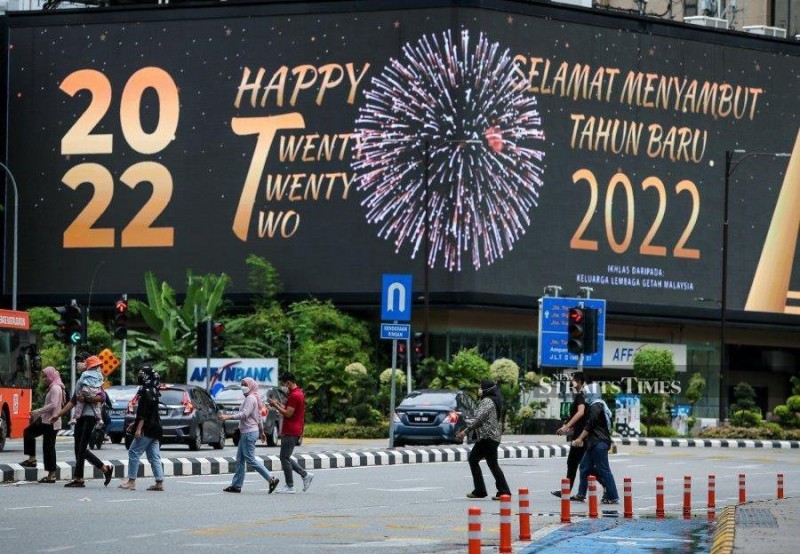
IN his New Year message, Prime Minister Datuk Seri Ismail Sabri Yaakob highlighted crucial developments in 2021 as vital foundations to rebuild the economy this year.
Will 2022 be the beginning of economic recovery? The PM hit the nail on the head by emphasising the need to be back on track in setting long-term economic planning.
The launch of the 12th Malaysia Plan (12MP) was one of the high points of his leadership, plus the introduction of the Keluarga Malaysia concept and the 2022 Budget. Under the 12MP, strategies for digital connectivity, the circular economy and resetting the economy have been set. Similarly, the 2022 Budget contains specific measures towards these ends.
Essentially, what transpires under the 12MP appears to be big goals to be achieved beyond 2025, such as transforming the economy to create a high-income nation and make Malaysia carbon neutral as early as 2050.
These require us to address many other issues, which are affecting the people, businesses and the economy as a whole, many predating the pandemic.
For example, the Employees Provident Fund withdrawals. The main issue is, how can the government, in the future, create an economy which is distributive by design, where no one is left behind?
For instance, providing affordable housing schemes, reliable public transportation, free nutritious food programmes, and quality healthcare and education systems, as well as guaranteeing jobs for everyone, ensuring a minimum basic income, providing cash aid for emergencies and insurance for the needy, and the provision of a universal pension scheme for all.
At the very least, a conversation about them should begin. We need new measures and strategies to move forward. For instance, instead of a moratorium, how about a write-off of selected household or business debt?
Or, instead of Bantuan Keluarga Malaysia, why not implement a Universal Basic Income? To address poverty and inequality of income and wealth, how about introducing Universal Social Protection?
Issues of digitalisation and sustainability must be the utmost priority. The transition to a carbon-neutral country as early as 2050 requires a lot of adjustments on the part of the ecosystem as well as business models and practices.
This is also true with the digitalisation and digitisation efforts. Culture, mindsets and values need to change. Labour market reforms, not to mention revisions of the education system, are critical.
Avoid the dystopian narrative of the impact of Industry 4.0, where automation will replace workers. Strengthen business players from the micro-, small- and medium-sized enterprises, especially when they are still badly hit by the pandemic, the lockdowns, floods and the new reality of the post-pandemic era.
Will their businesses still exist five years from now? How will, for example, metaverse impact businesses?
A report by Asian Development Bank estimated that around 30 million jobs will be created by 2030 from new industries, such as clean energy, circular economy and low-carbon economy. Is our business environment ready for this change? Will the business ecosystem be transformed to become regenerative by design?
The middle-income trap conundrum is real. The economy must grow 5.0 per cent to 6.5 per cent in the next five years to turn Malaysia into an advanced high-income nation. The ringgit needs to be strengthened, investments, especially foreign direct investments, have to be reinvigorated, and international trade needs to be revitalised.
In this regard, ratification of the Regional Comprehensive Economic Partnership and the Comprehensive and Progressive Agreement for Trans-Pacific Partnership must be expedited as soon as possible and a superior and modern tax system — the Goods and Services Tax — reintroduced.
It is also crucial that advanced transportation projects like the Kuala Lumpur-Singapore high-speed rail be reintroduced. These are what building back better is all about.
So to answer the question I posed in the beginning, isn't it about time that a new National Vision was introduced this year to capture the long and structural issues highlighted above, especially for those proposed measures and strategies put forth
to solve them? As Winston Churchill would say, "Never let a good crisis go to waste".
Source: https://www.nst.com.my/opinion/columnists/2022/01/761647/develop-national-vision-tackle-longstanding-structural-issues

